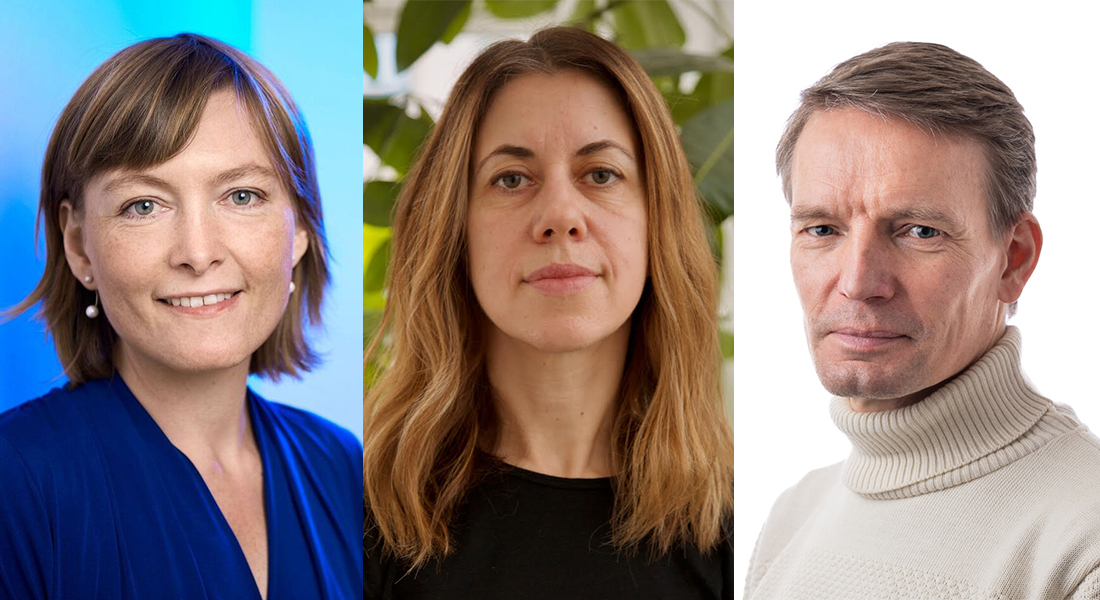Three SAMF researchers receive prestigious ERC Advanced Grant
Three researchers from the Faculty of Social Sciences have been awarded ERC Advanced Grants by the European Research Council (ERC) - one of Europe’s most prestigious research grants.

The grant is awarded to established researchers with a proven track record of exceptional research and groundbreaking ideas that can push the boundaries of knowledge.
With funding of up to 2.5 million euros over five years, Christian Rostbøll (Department of Political Science), Rebecca Adler-Nissen (Department of Political Science), and Victoria Southgate (Department of Psychology) will have the opportunity to carry out ambitious research projects with great potential.
TECHORDER explores the geopolitical struggles shaping the emerging global tech order. While national security concerns and profit maximization are key, imaginaries of the future of AI and quantum technology - apocalyptic or utopian - are crucial for shaping international cooperation and rule-making. Through a multi-method approach, TECHORDER maps how global powers and big tech companies across the world imagine their own roles, digital futures and geopolitics. The project develops a new theory of global tech governance, uncovering the hidden cultures and rivalries that redefine international order in the digital age.
The MoPo project investigates how morality plays an increasingly prominent role in contemporary politics, for example in cancel culture, climate shaming, and accusations of fake news. When we judge each other as good or bad people, politics becomes moralized - and this can both harm and strengthen democracy. Rather than focusing solely on the negative consequences, such as polarization, MoPo explores what it means that we, as human beings, cannot help but judge one another, and how this connects to the ideal of mutual accountability in democracy. Through philosophical analysis and four case studies, the project seeks to understand when moral judgments undermine or support democracy - and how they can be used constructively.
The problem of how humans - probably uniquely - can be self-aware has been debated for centuries. This project explores how self-awareness might emerge in infancy, testing a novel theory that caregiver communication modulates infants’ awareness of internal bodily states, such as their heartbeat. When combined with infants’ expectation that communication is referential, this interaction may create the conditions for the emergence of a self-concept in the first year of life. The project uses an interdisciplinary approach, integrating cognitive neuroscience (MRI, fNIRS and EEG) with cross-cultural investigations of varying caregiver-infant communicative practices in Denmark, Japan, and Vanuatu, to provide the first empirical test of this theory.
ERC Advanced Grants are awarded based on scientific excellence and originality. Applicants must demonstrate significant research achievements over the past decade and the ability to lead a major research program.
Vice Dean for Research at SAMF, Mads Jæger, is proud of the three researchers’ success:
'An ERC grant is a strong mark of quality, and the fact that we have received three this year underscores the Faculty of Social Sciences’ position as a leading actor in excellent basic research.'
In total, the University of Copenhagen has received four ERC grants this year, with the fourth going to Peter Brodersen at the Department of Biology (SCIENCE).
Contact
KU Press and Media Service
Mobile: +45 21 18 10 48
Email: presse@adm.ku.dk
